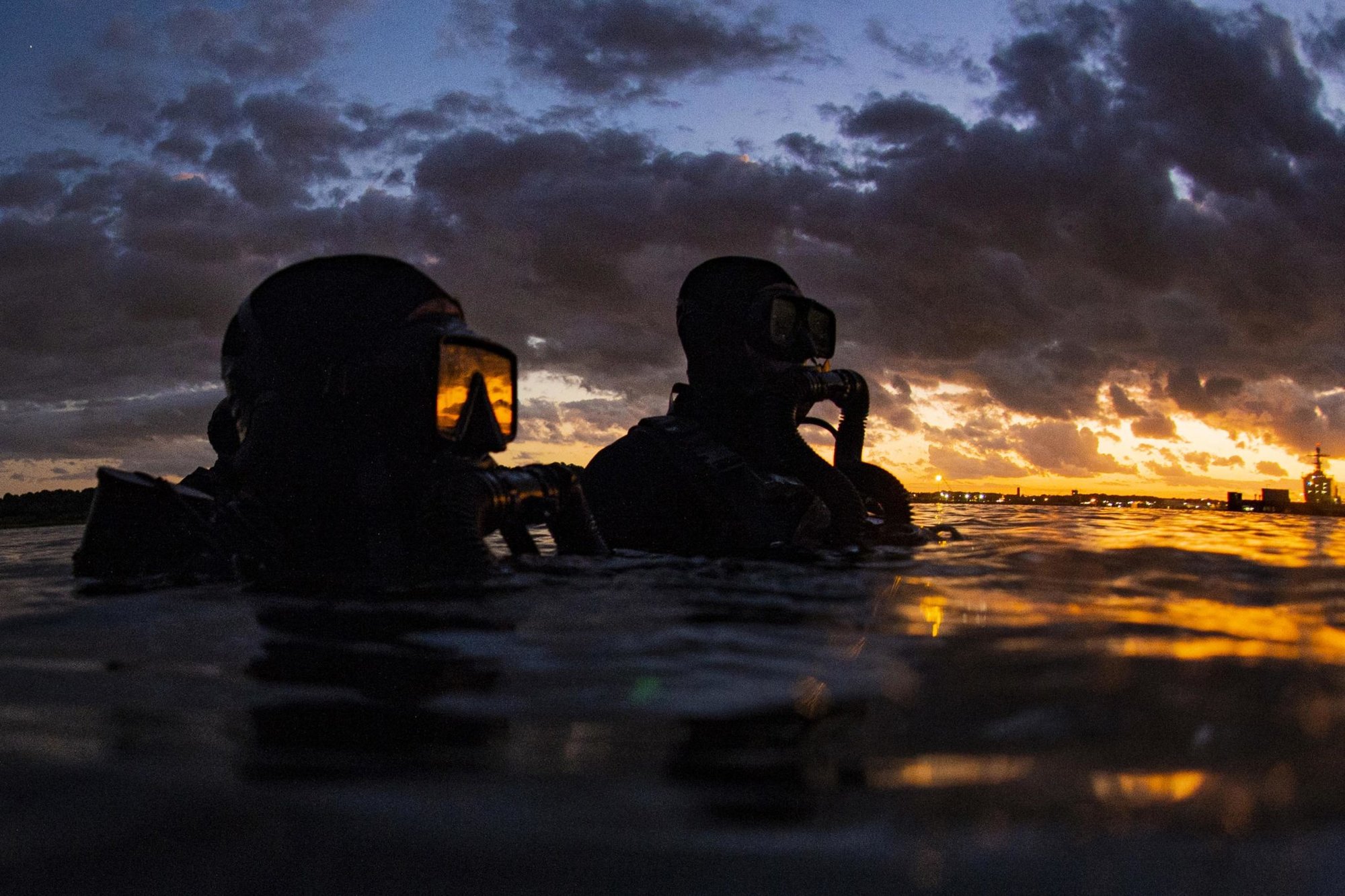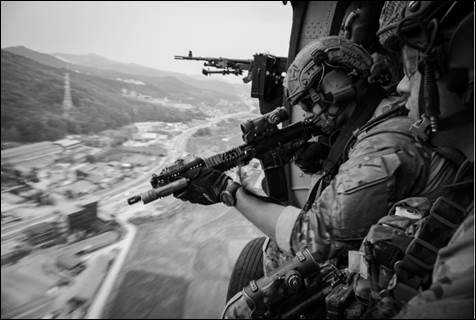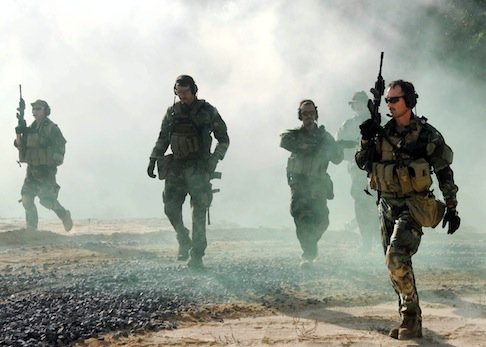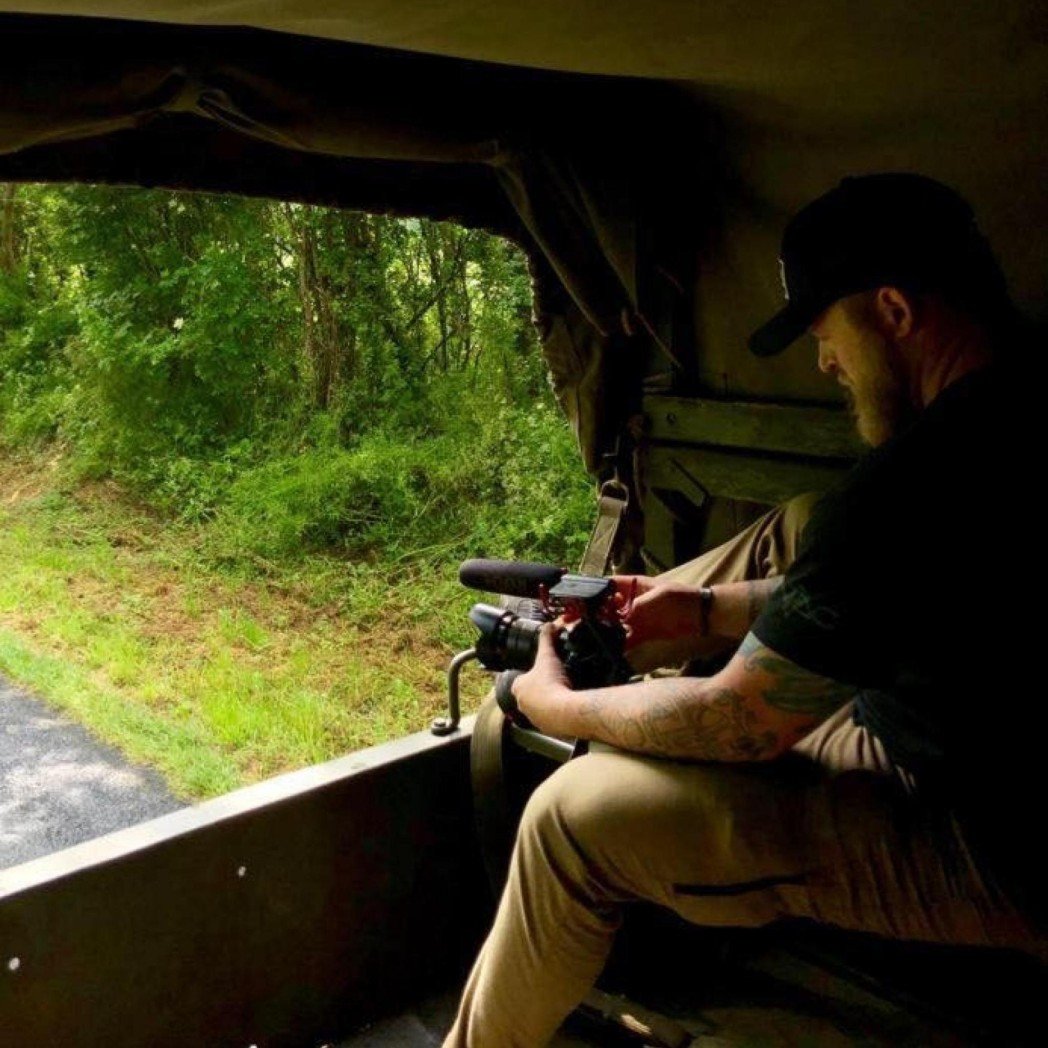
190918-N-XD935-0006 -ATLANTIC OCEAN (September 18, 2019) A member assigned to Naval Special Warfare Group 2 conducts military dive operations off the East Coast of the United States. Naval Special Warfare (NSW) invests in the training and development of sustainable capabilities, capacity and concepts to sharpen the competitive advantage of U.S. Navy Special Operation Forces (SOF). (U.S. Navy photo by Senior Chief Mass Communication Specialist Jayme Pastoric/RELEASED)
The U.S. Special Operations Command (SOCOM) recently announced progress with their hyper-enabled operator effort, which will allow U.S. Special Operations Forces (SOF) to stay at the forefront of training, equipment, and technology.
“The Hyper Enabled Operator effort is emerging out of SOCOM’S failed Iron Man suit effort, launched in 2013 as the Tactical Assault Light Operator Suit (TALOS) to equip operators with a futuristic suit that featured full-body armor protection and enhanced physical performance capabilities,” Military.com reported.
SOCOM commands the U.S. Army, U.S. Navy, U.S. Air Force, and U.S. Marine Corps SOF. Groups within each branch include the Army Special Forces, Navy SEALs, Army Rangers, and more. Each member of SOF is held to a high standard of physical fitness as well as proficiency with tools and weapons.

According to National Defense, SOCOM’S acquisition executive James Smith said that they have been working on this project for two years. “We’re talking about […] improving your cognitive overmatch at the edge,” he said during the National Defense Industrial Association’s annual Special Operations Forces Industry Conference. “The edge for us […] is this small unit, individual operator, operating in a remote, austere environment.”
These specialized commandos will have improved communication capabilities through commercial and government technologies that will enable them to plan mission details and execute them faster than ever. They are looking into sending different types of sensors and communication devices that will further enable their ability to approach real-time analysis of the data gathered in an operationally challenging environment.

This new technology will trump older versions currently in use, which can take hours, days, or weeks to properly analyze data. Additional features would enable universal use around the world. SOCOM is also looking into applications for air and sea assets instead of strictly focusing on ground assets.
“Within the next year we’ll be doing assessments and seeing whether the things that the team is working on are ready to potentially get ready to roll out into a transition and whether we should be taking on new lines of effort,” said Lisa Sanders, director of science and technology at Special Operations Command, according to National Defense Magazine.
As these new operational enhancements are tested and proven to work, SOCOM will be implementing the equipment with a deployed unit for field assessment and feedback.

Joshua Skovlund is a former staff writer for Coffee or Die. He covered the 75th anniversary of D-Day in France, multinational military exercises in Germany, and civil unrest during the 2020 riots in Minneapolis. Born and raised in small-town South Dakota, he grew up playing football and soccer before serving as a forward observer in the US Army. After leaving the service, he worked as a personal trainer while earning his paramedic license. After five years as in paramedicine, he transitioned to a career in multimedia journalism. Joshua is married with two children.
BRCC and Bad Moon Print Press team up for an exclusive, limited-edition T-shirt design!
BRCC partners with Team Room Design for an exclusive T-shirt release!
Thirty Seconds Out has partnered with BRCC for an exclusive shirt design invoking the God of Winter.
Lucas O'Hara of Grizzly Forge has teamed up with BRCC for a badass, exclusive Shirt Club T-shirt design featuring his most popular knife and tiomahawk.
Coffee or Die sits down with one of the graphic designers behind Black Rifle Coffee's signature look and vibe.
Biden will award the Medal of Honor to a Vietnam War Army helicopter pilot who risked his life to save a reconnaissance team from almost certain death.
Ever wonder how much Jack Mandaville would f*ck sh*t up if he went back in time? The American Revolution didn't even see him coming.
A nearly 200-year-old West Point time capsule that at first appeared to yield little more than dust contains hidden treasure, the US Military Academy said.












